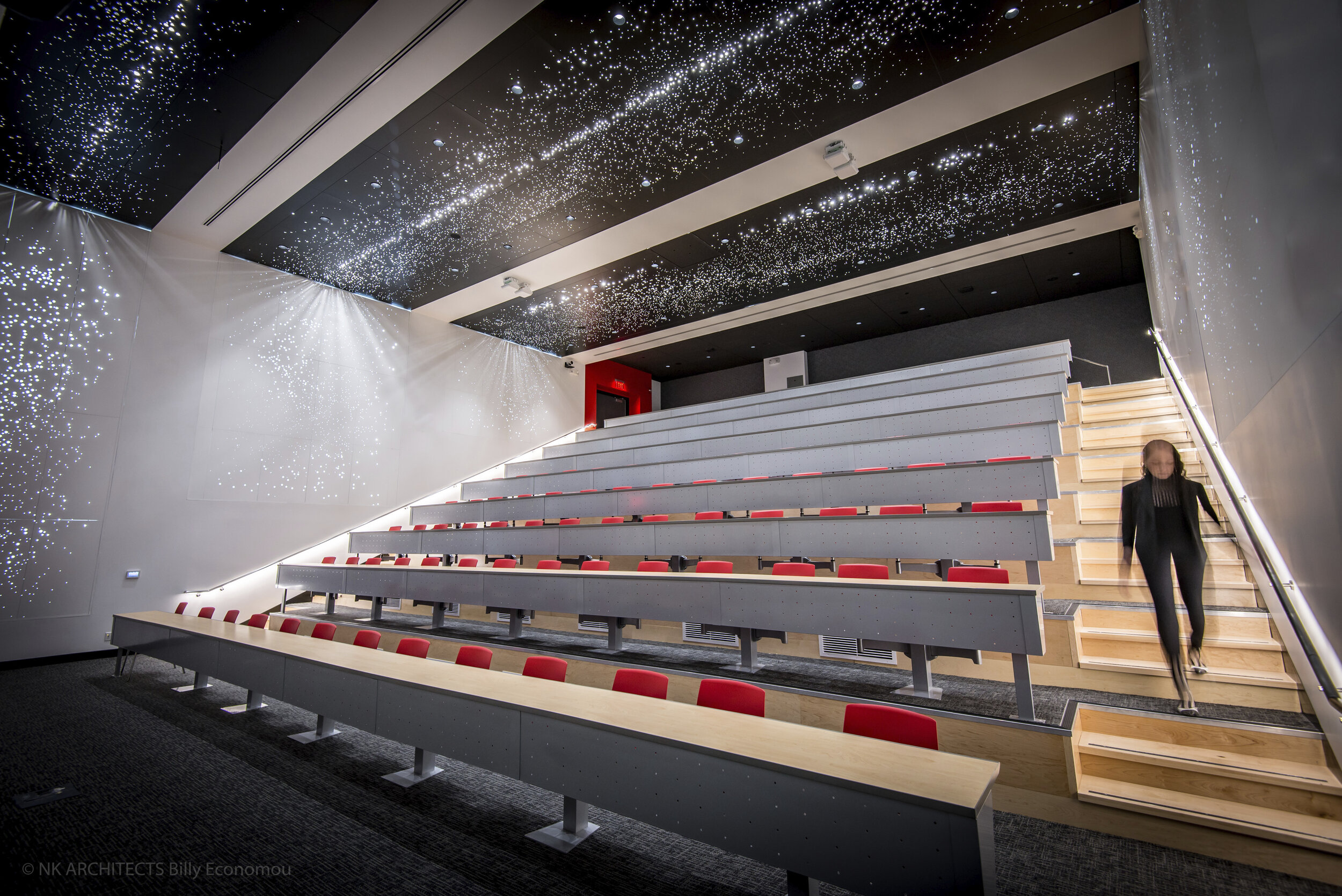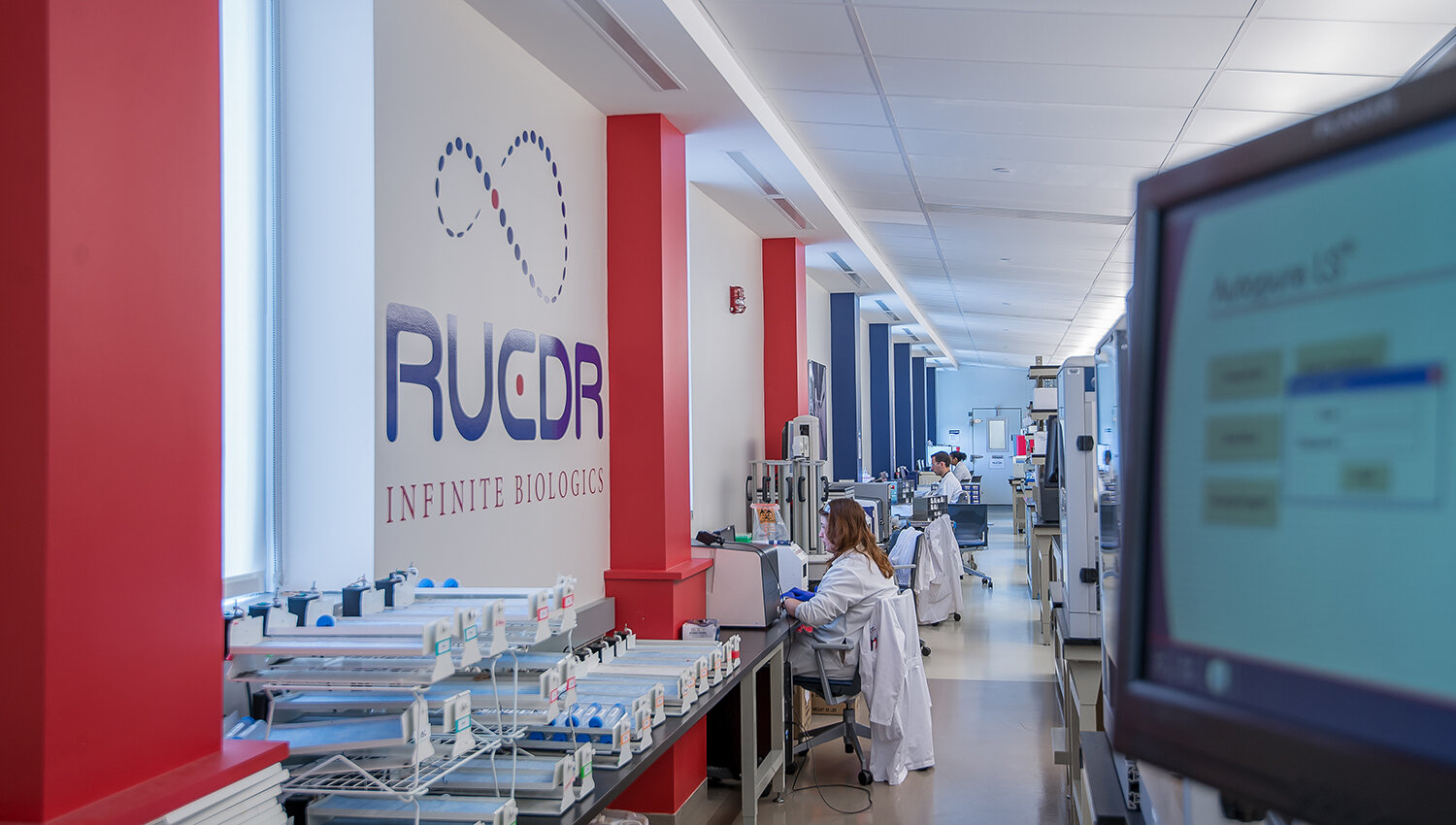NJIT Micro-Fabrication Lab
Micro-Fabrication Laboratory + Microelectronic Clean Room
PRINCIPAL
ARCHITECTURAL TEAM
Adrian Allen
Elizabeth Burke
Urvashi Joshi
Levitta Lawrence
INTERIOR DESIGN
Elizabeth Burke
structural

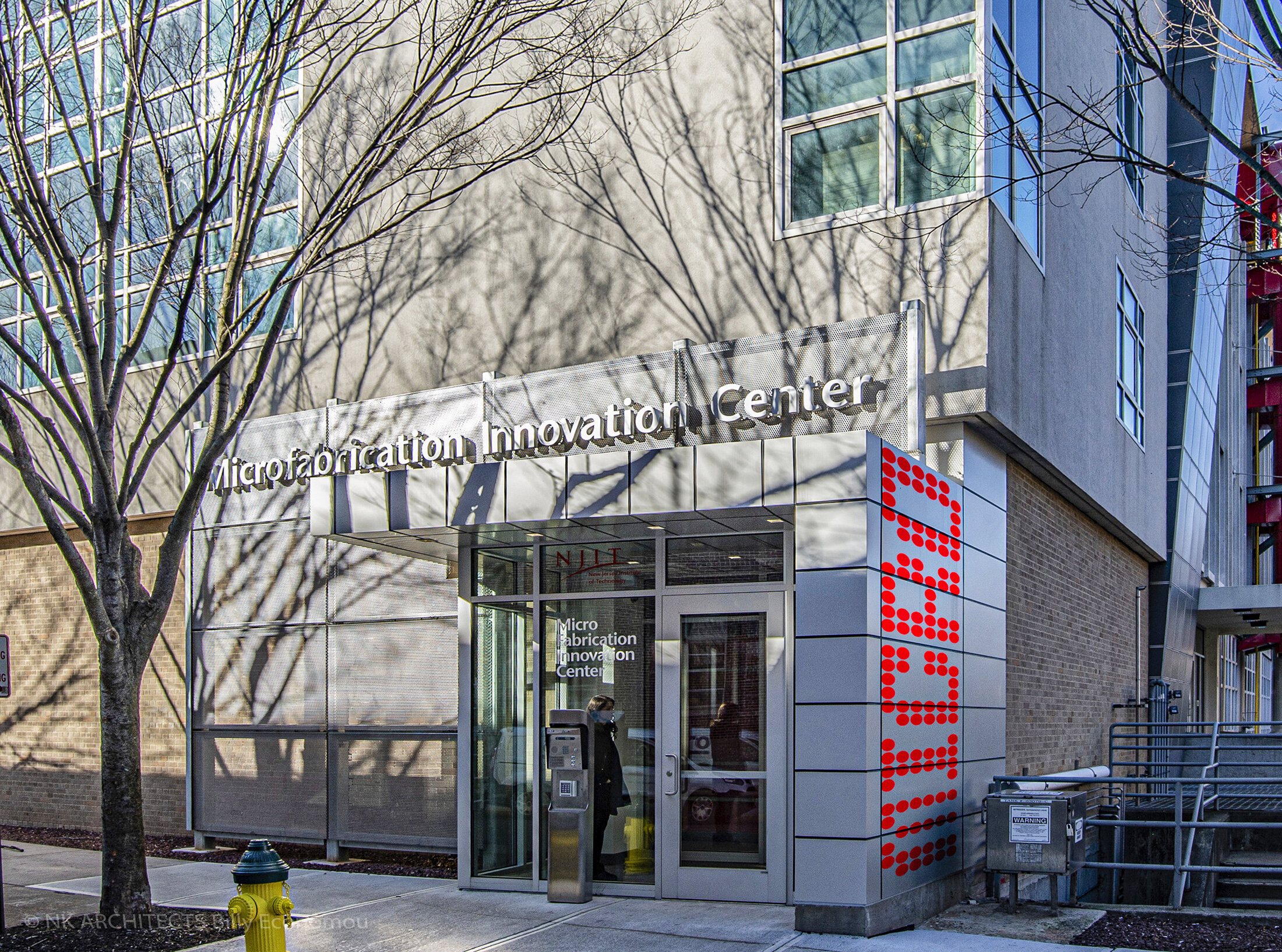
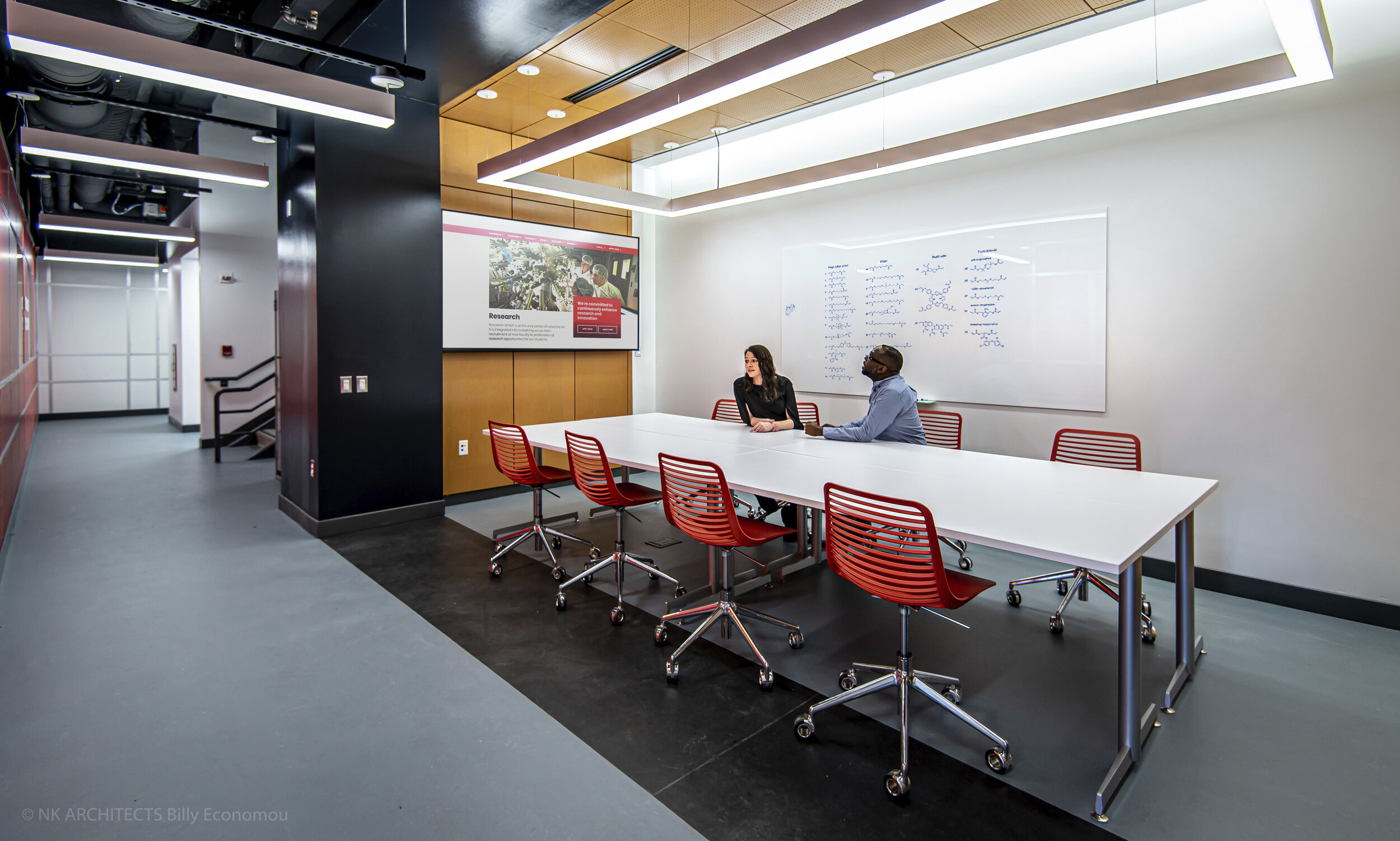
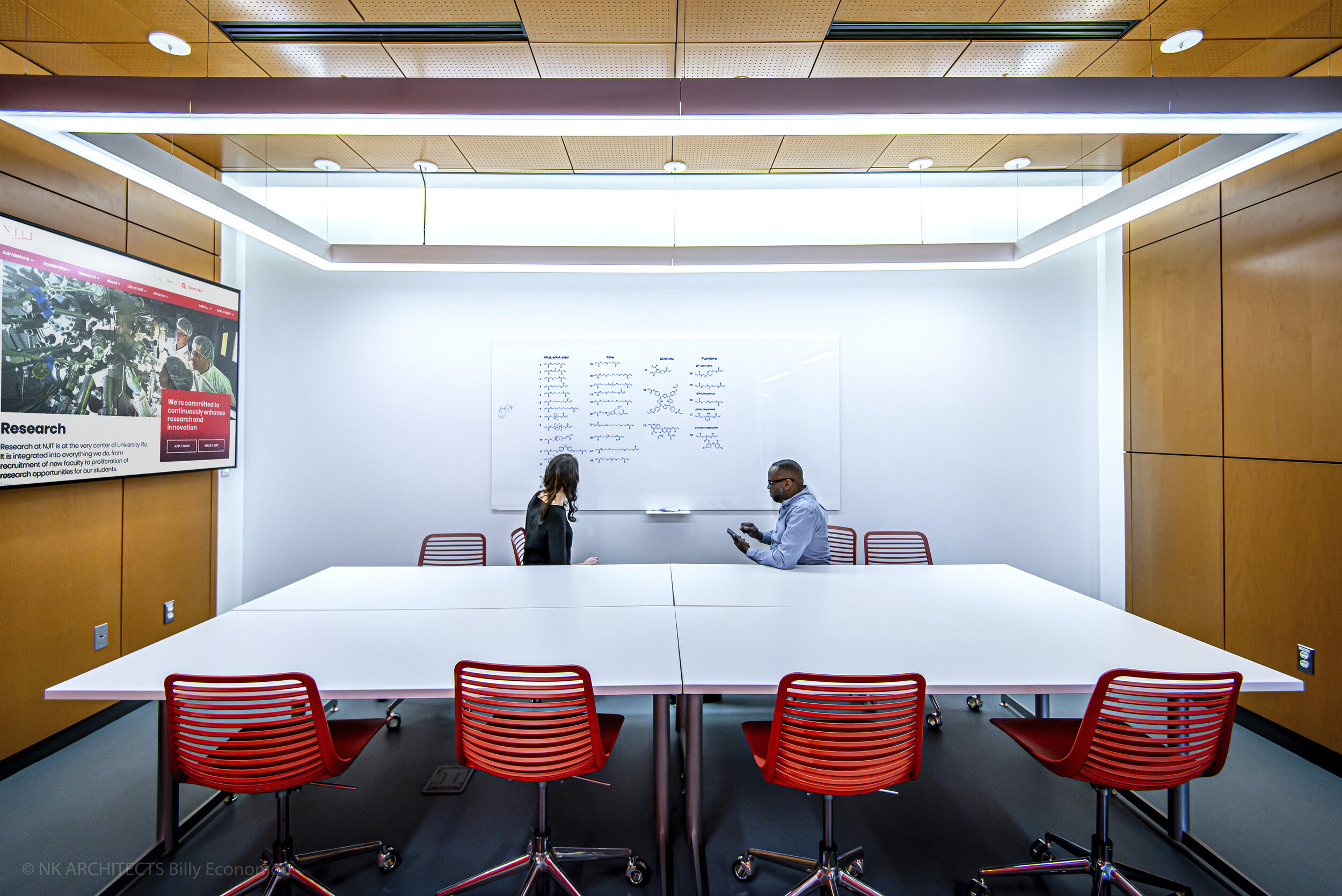
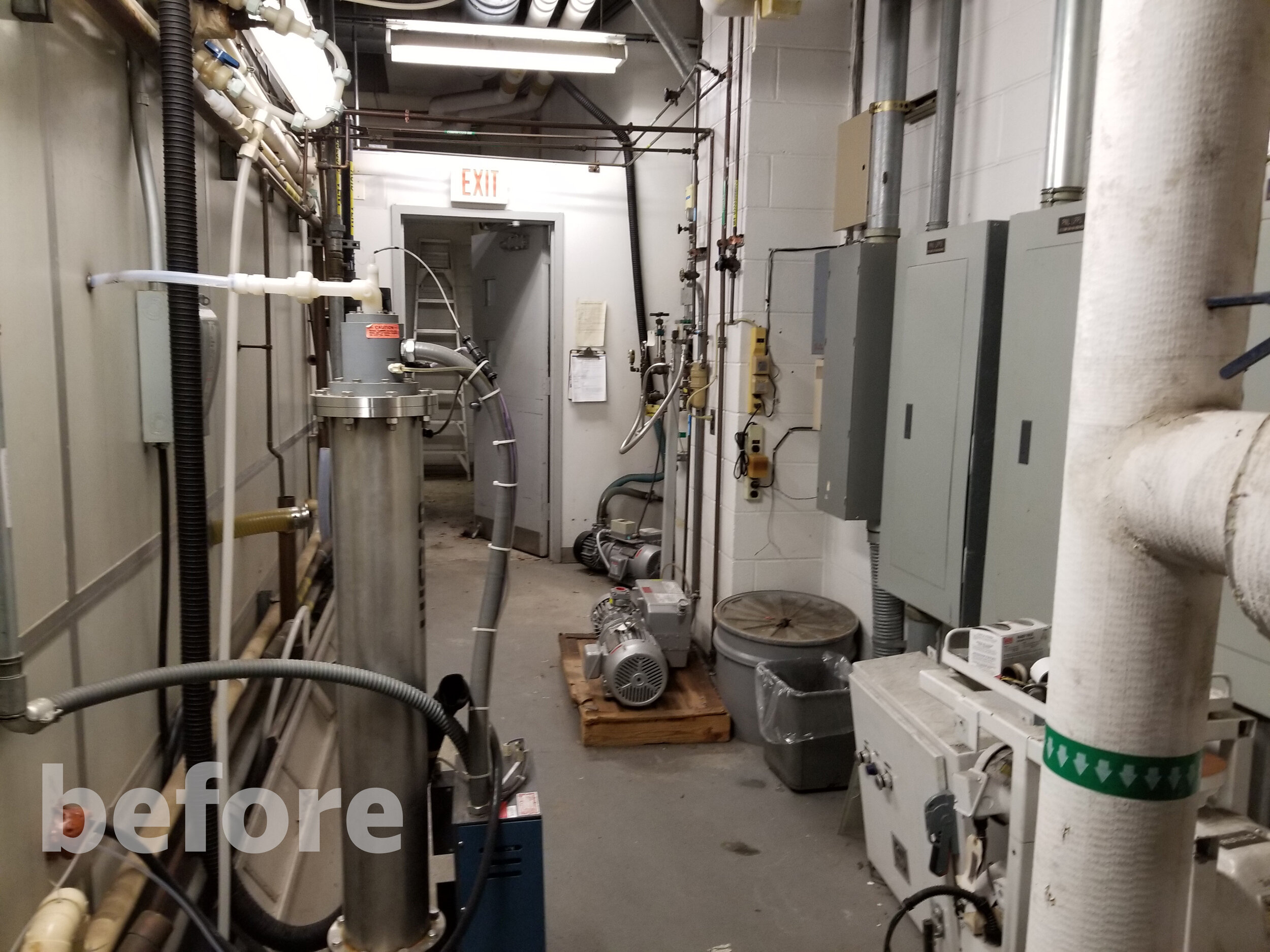
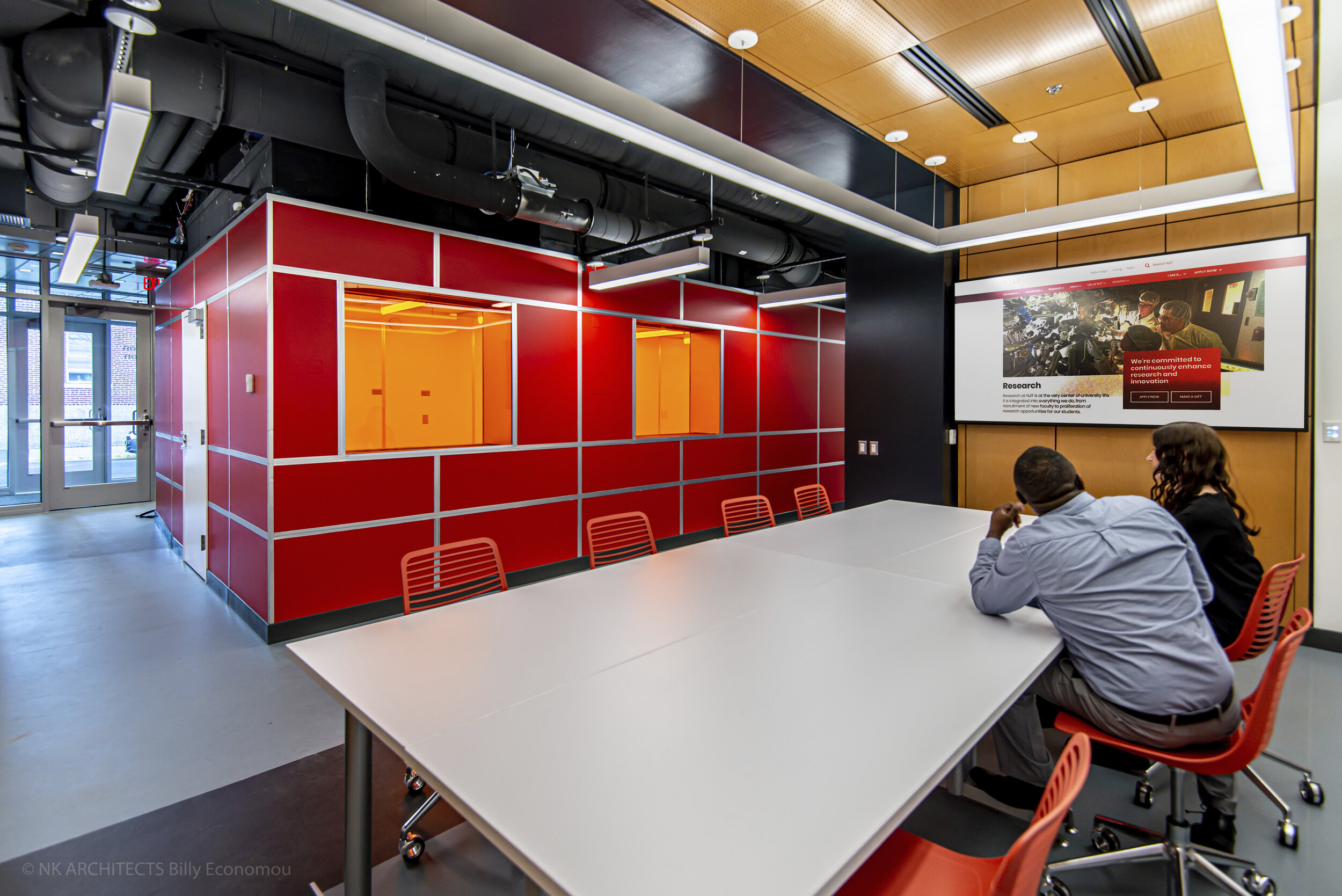
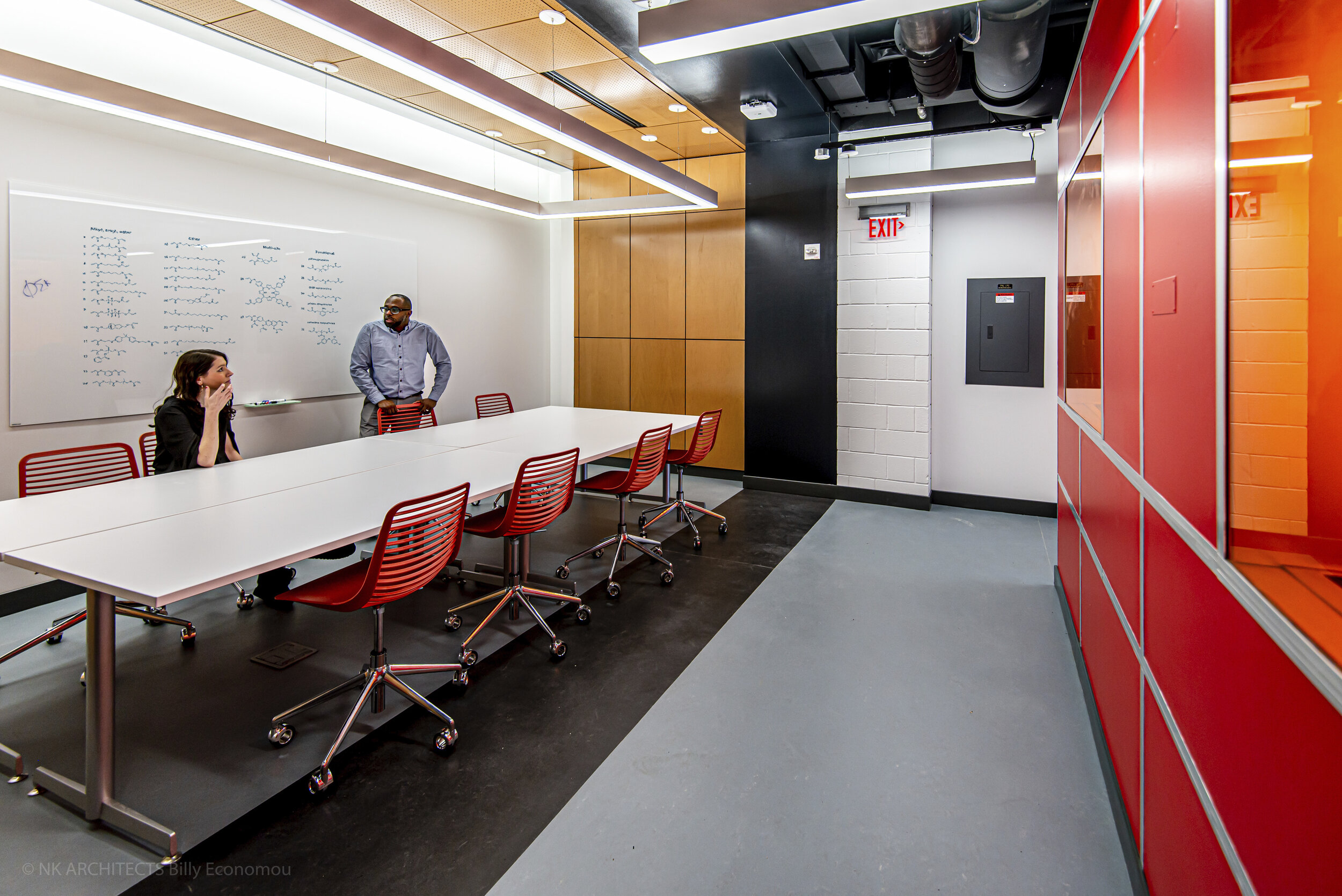
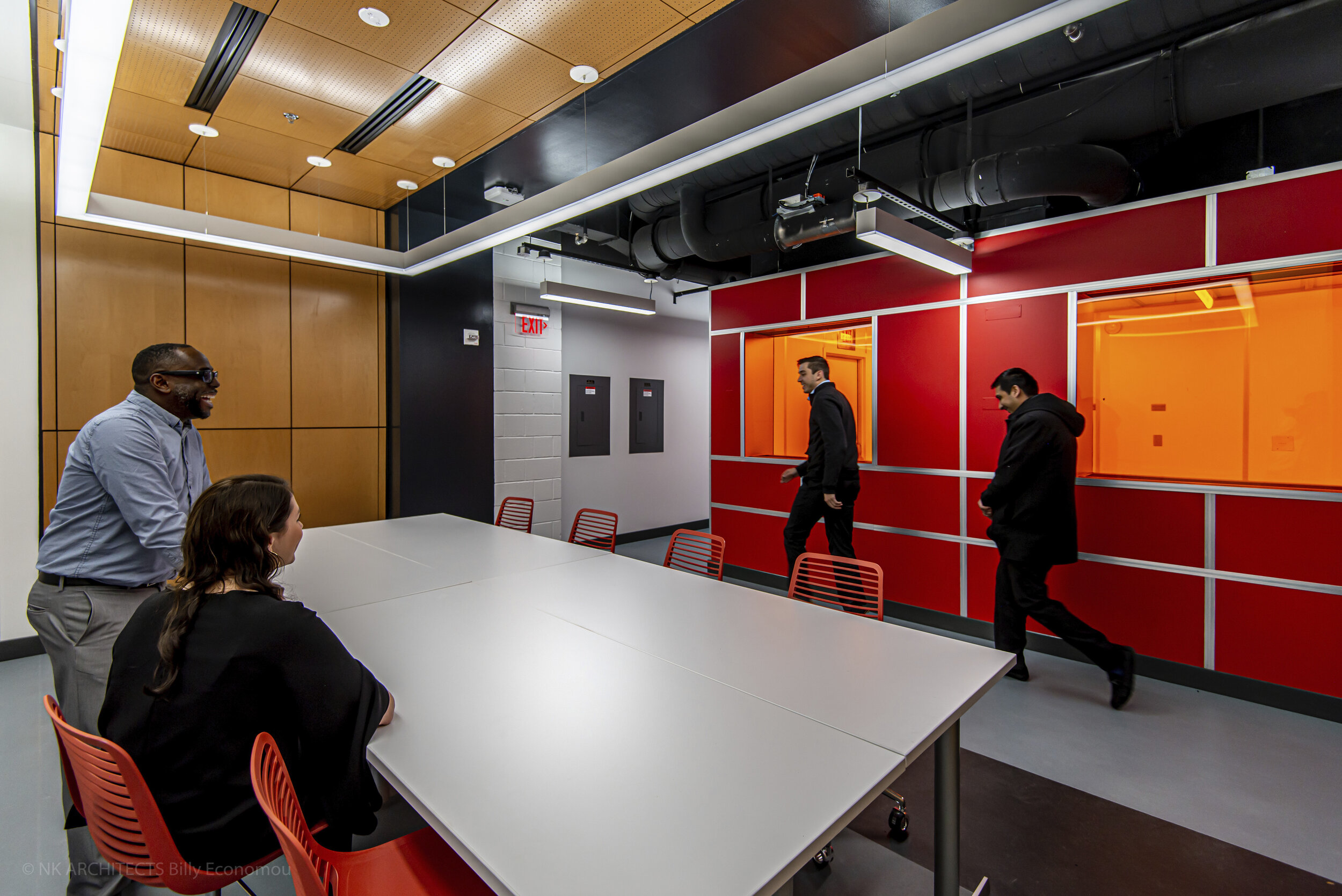
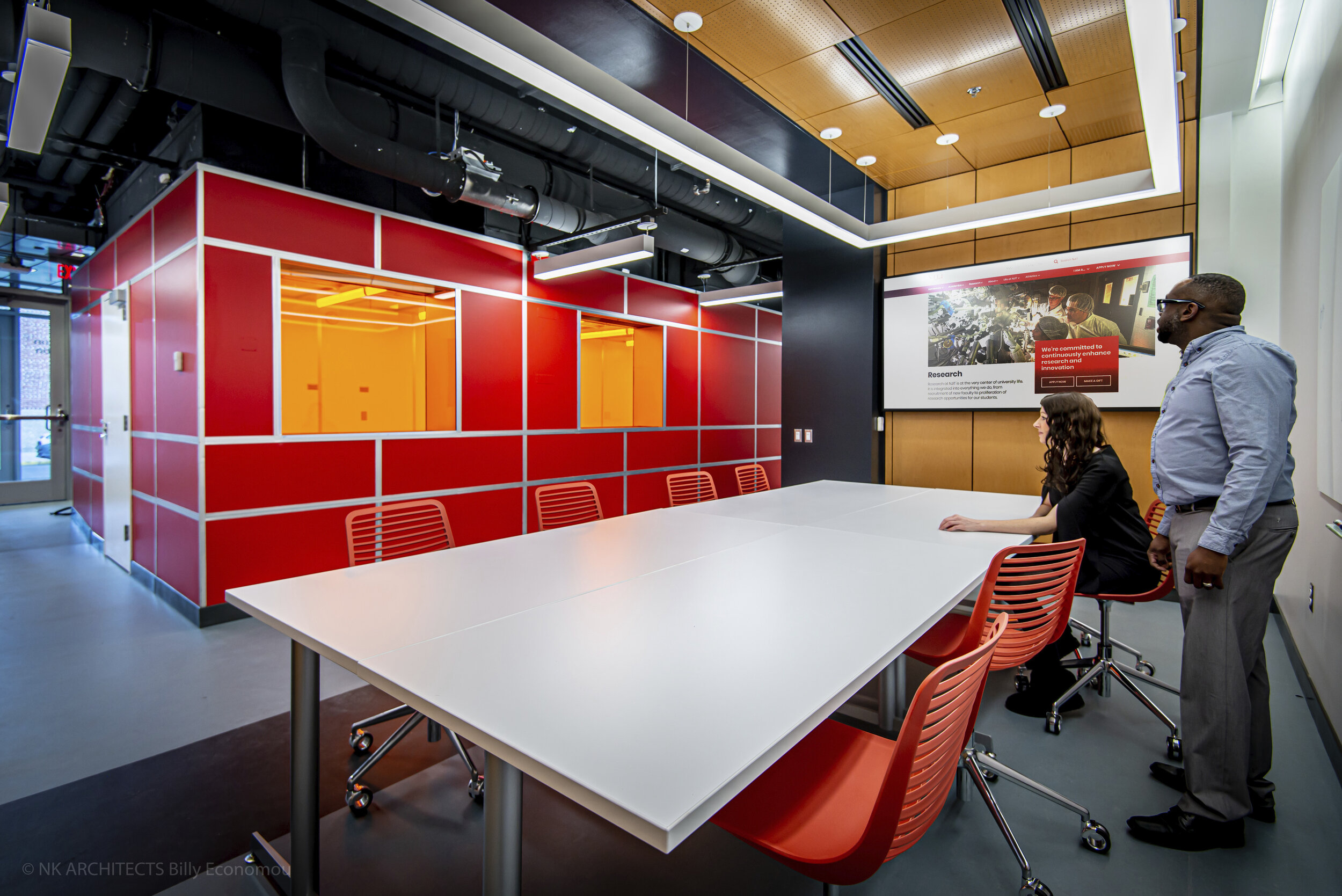
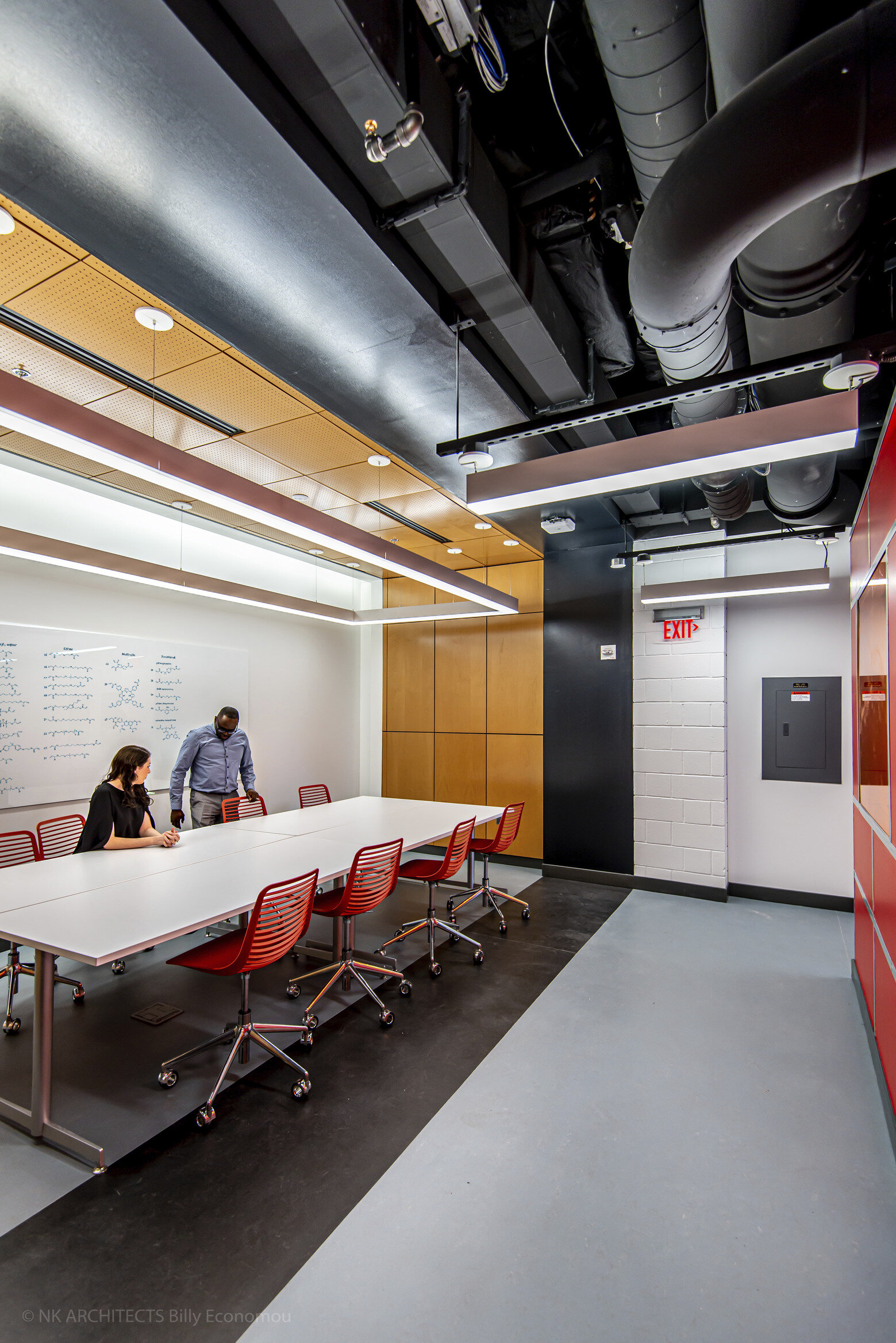
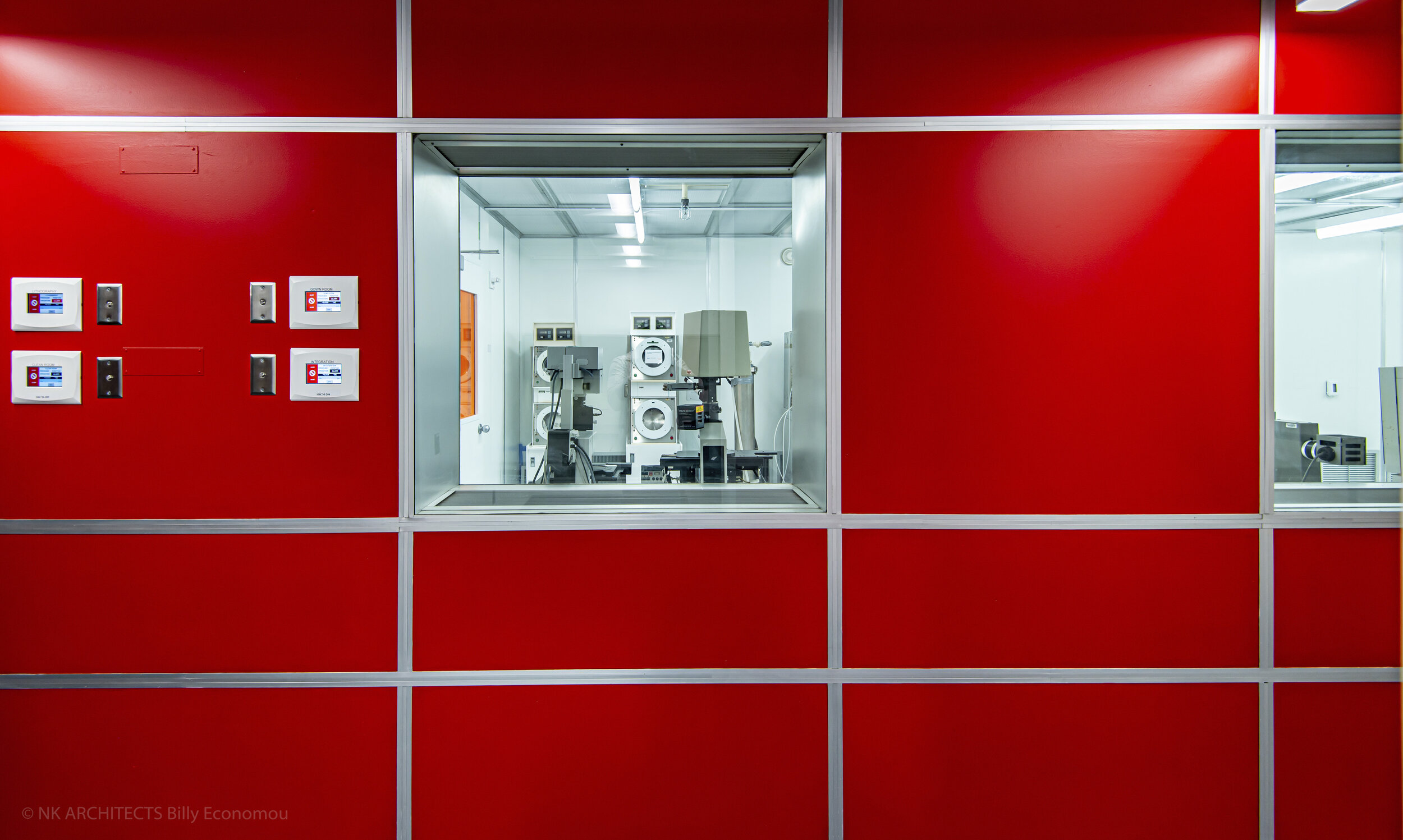
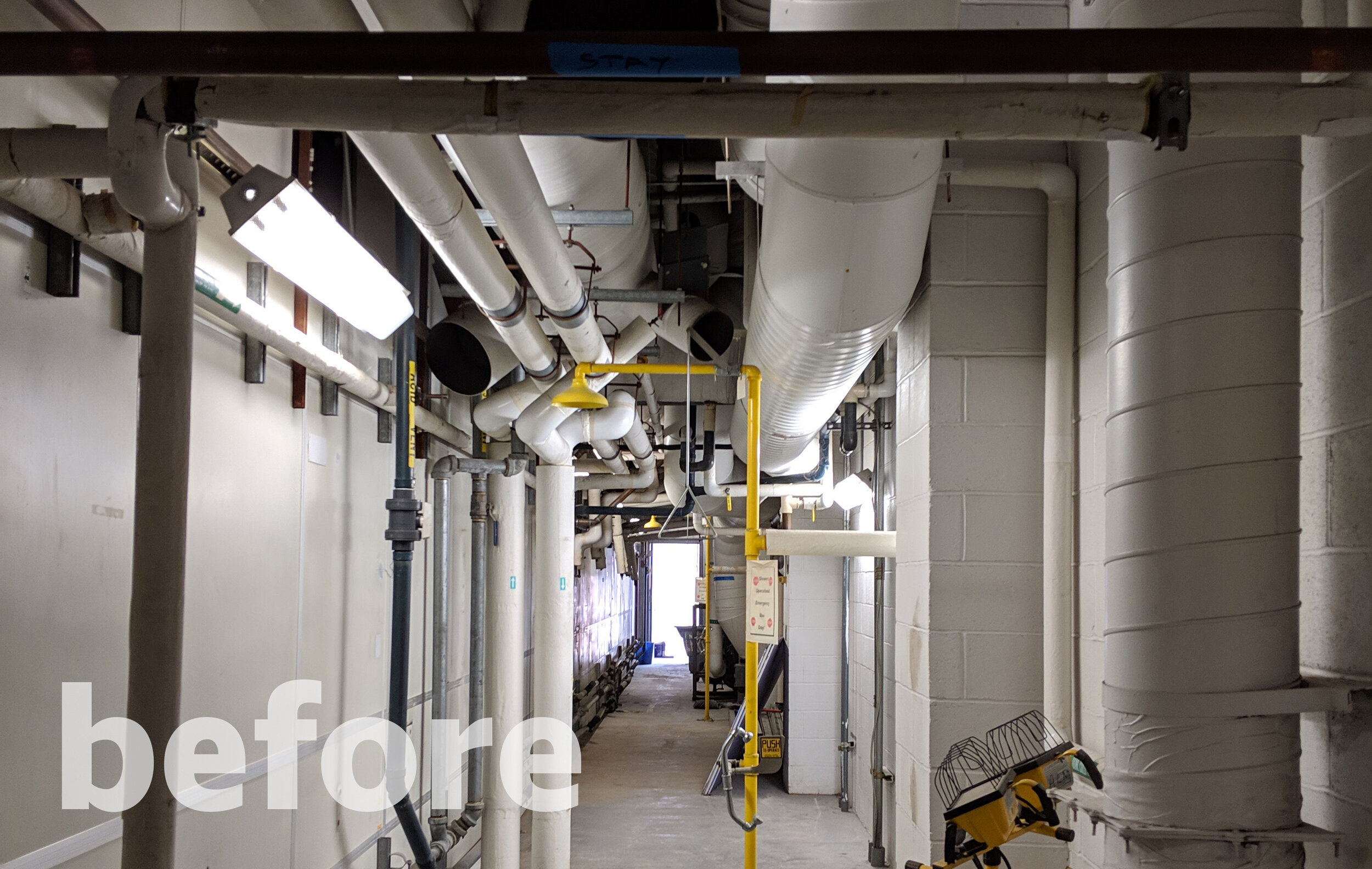
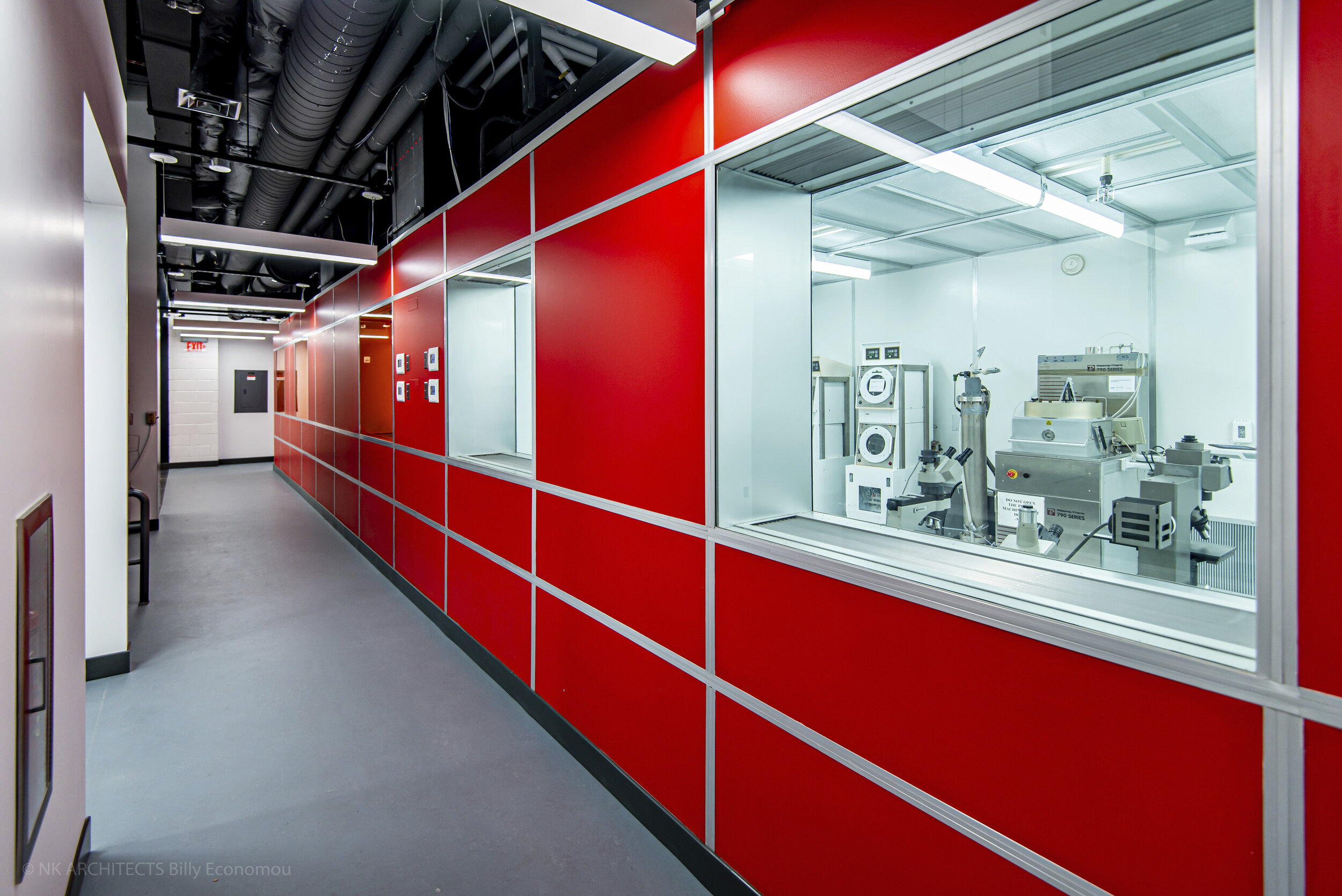
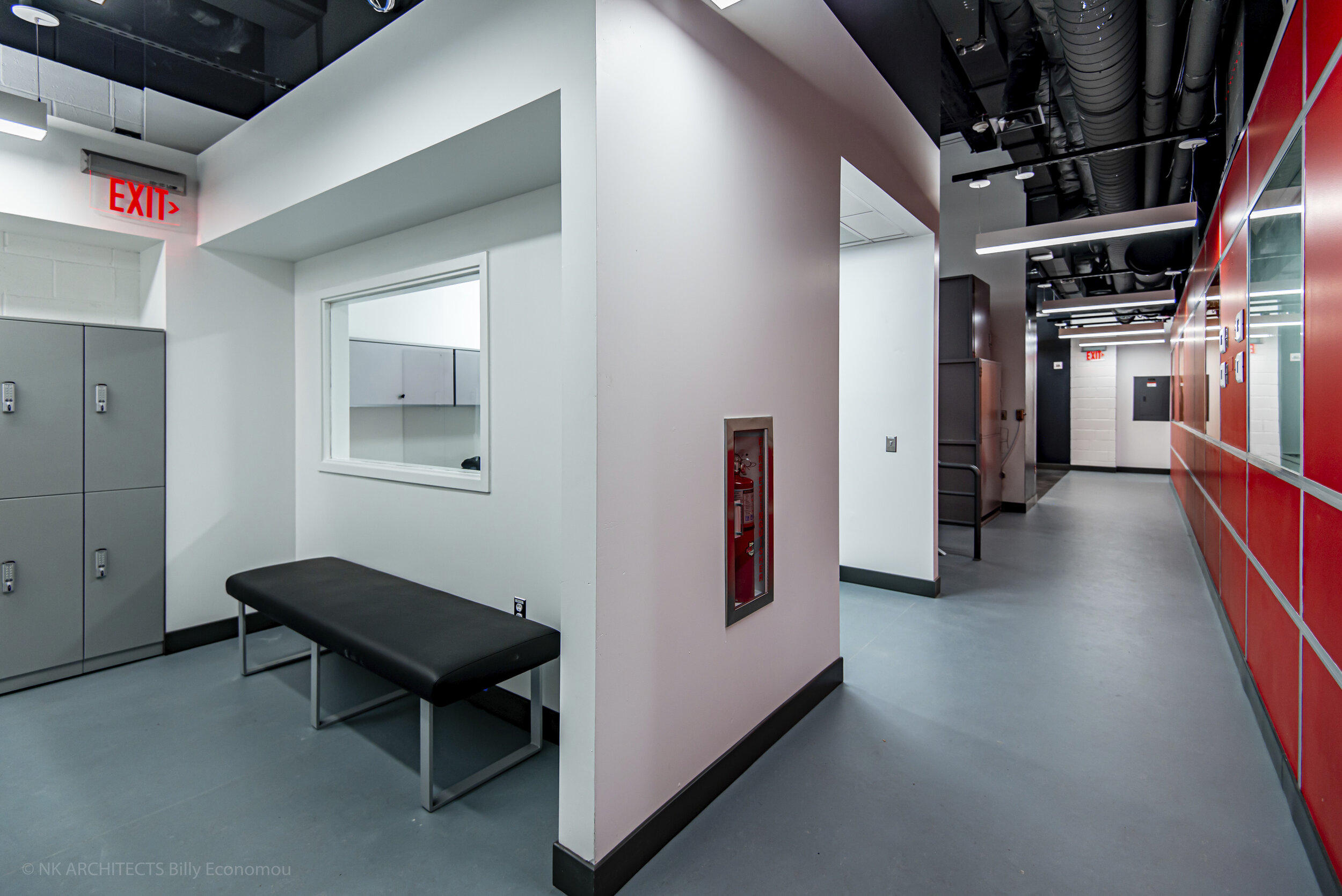

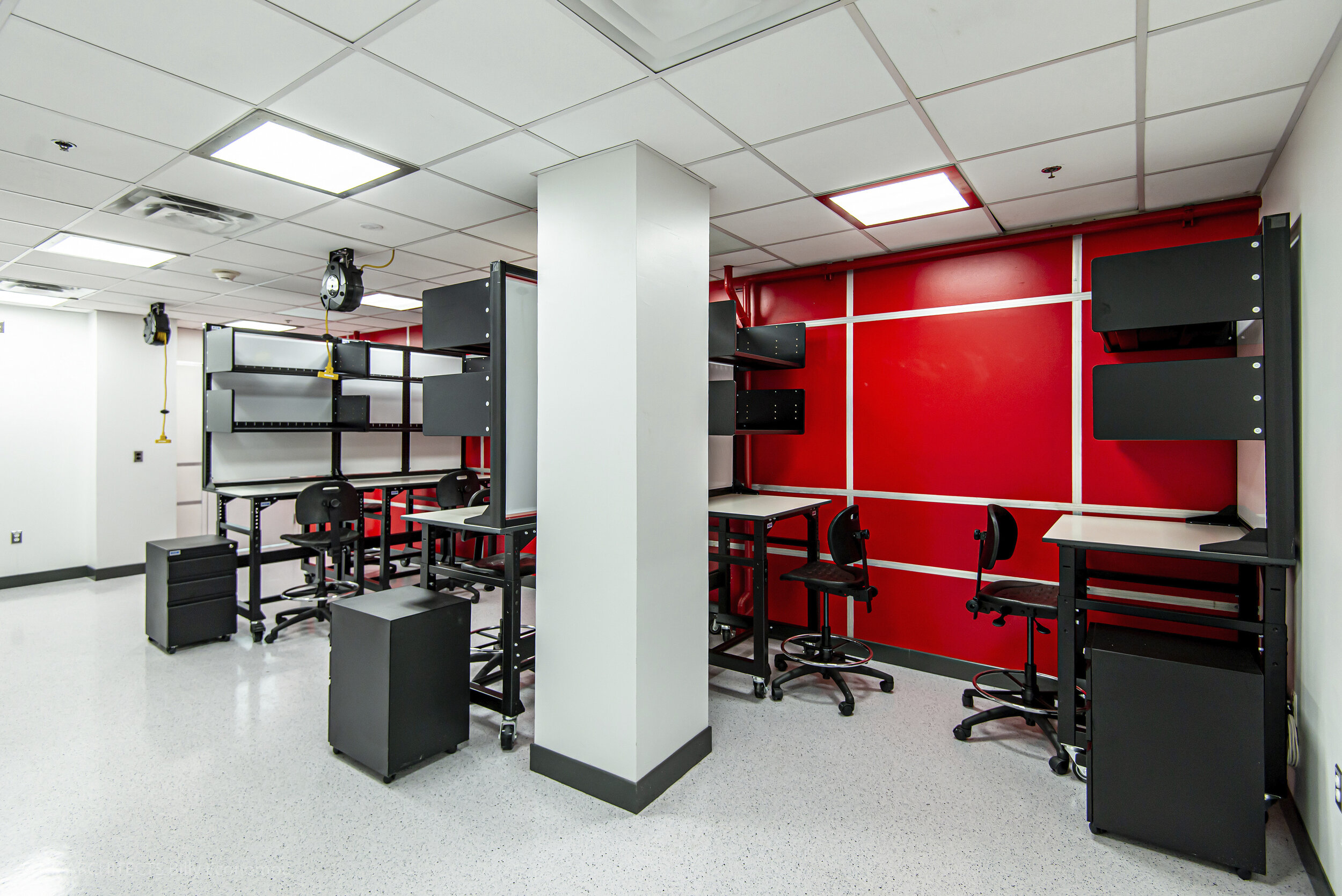
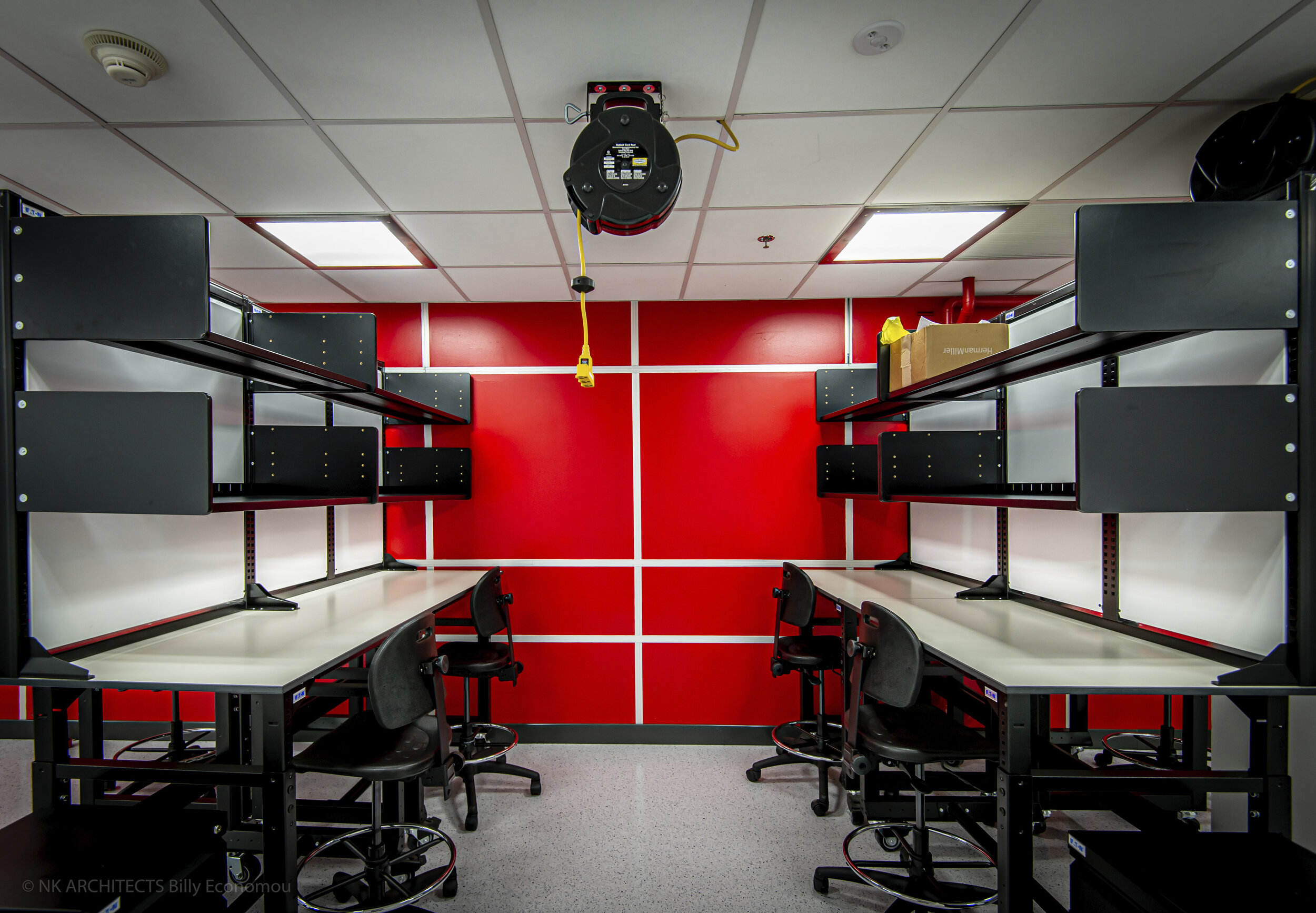
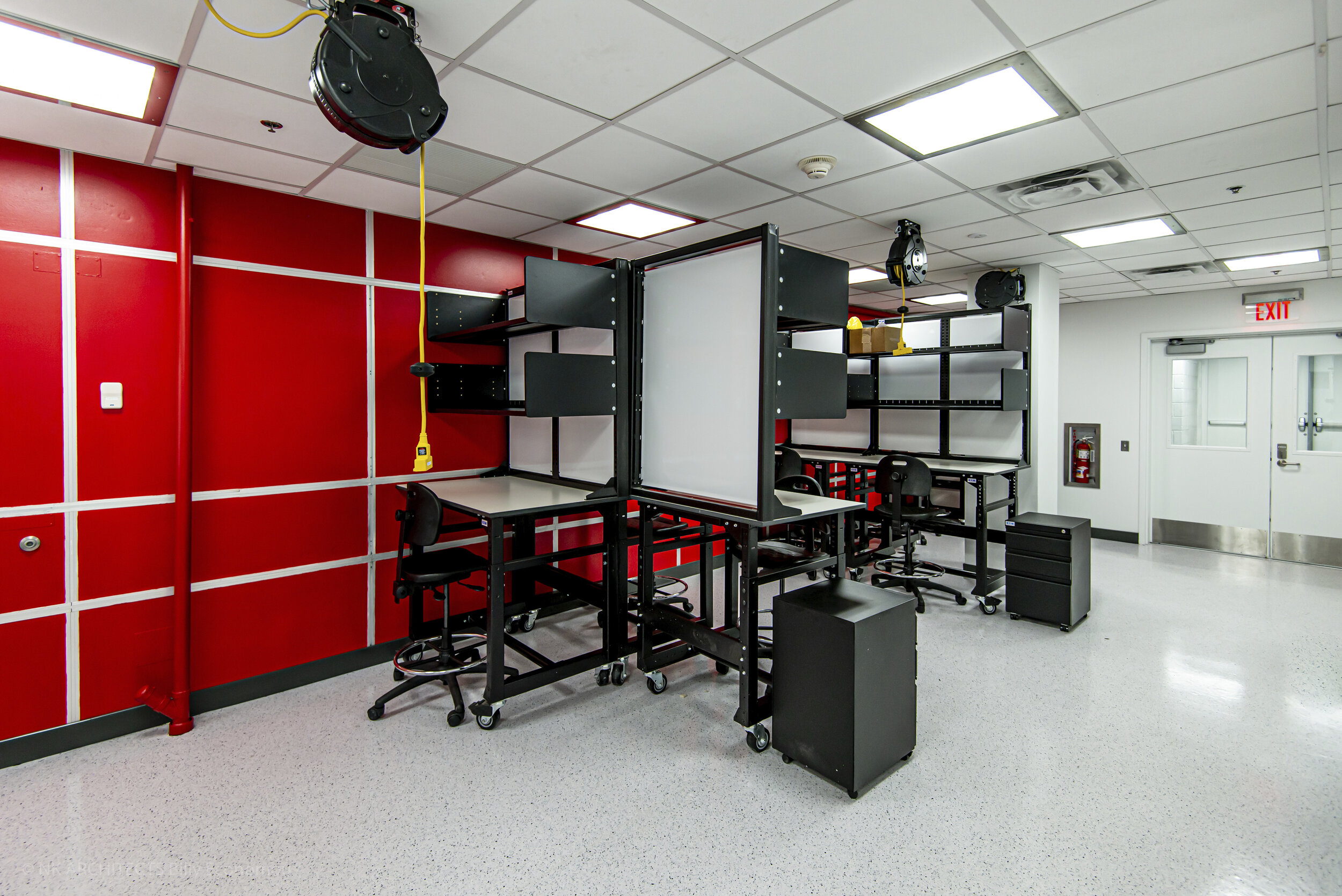

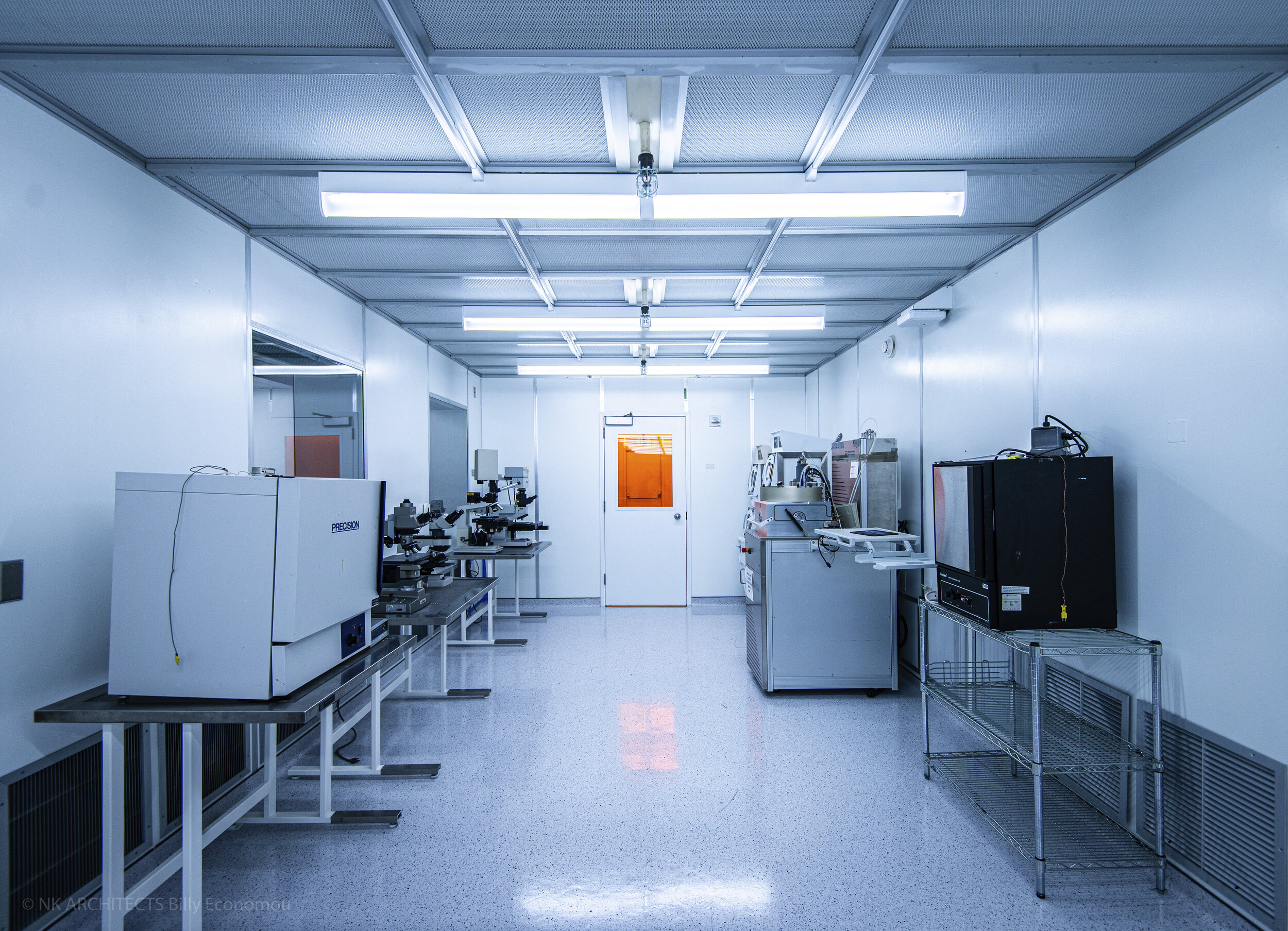

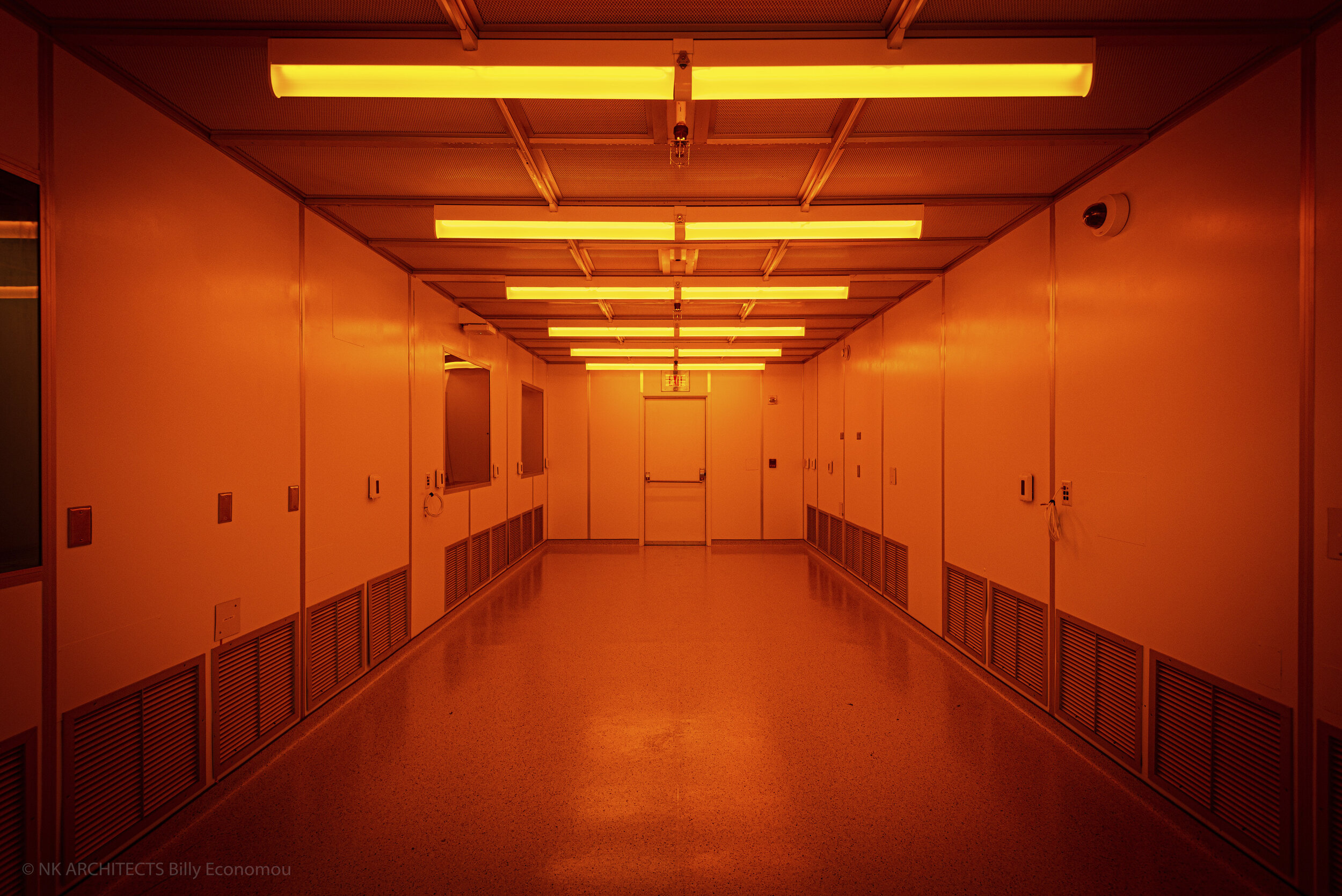
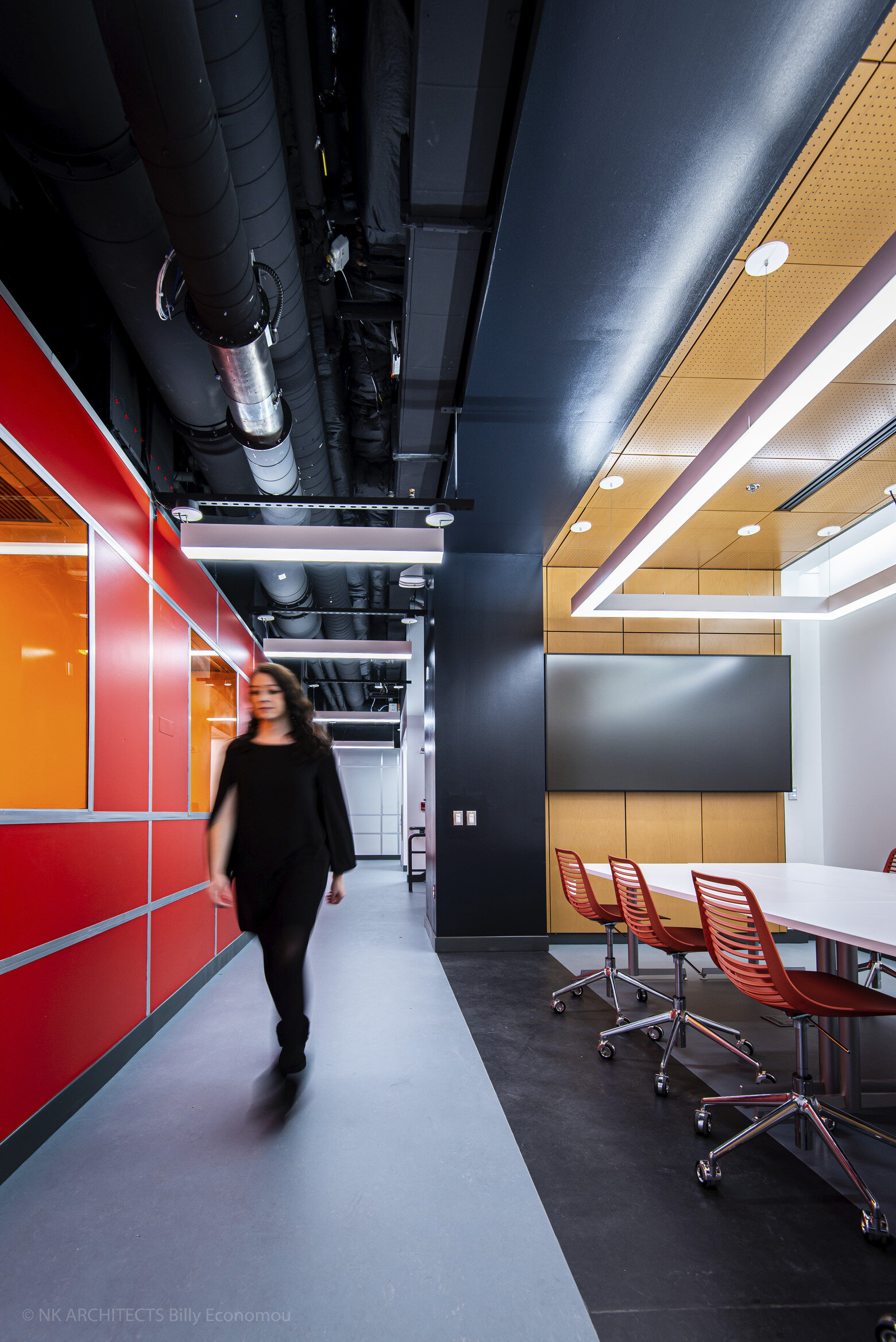
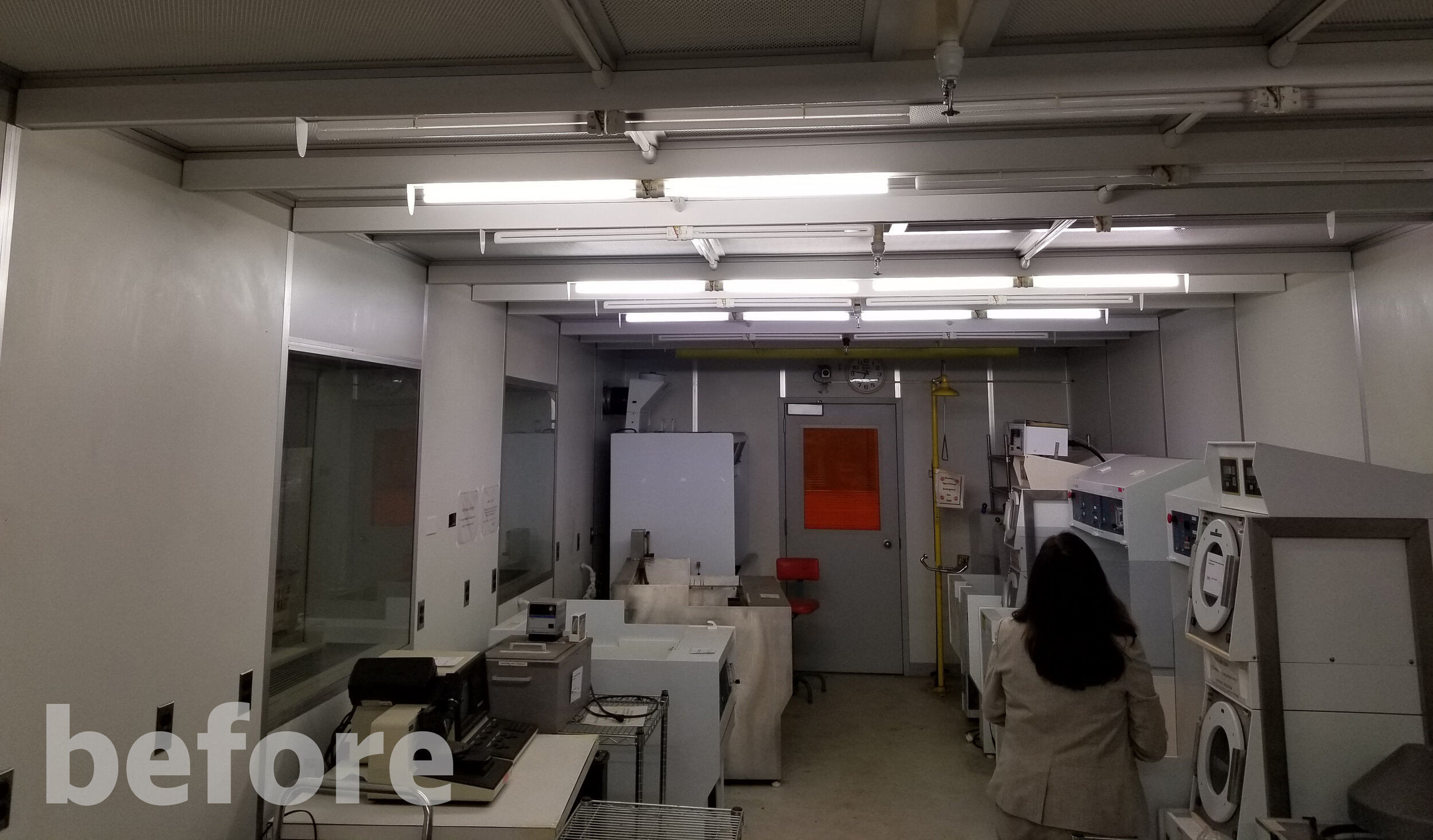
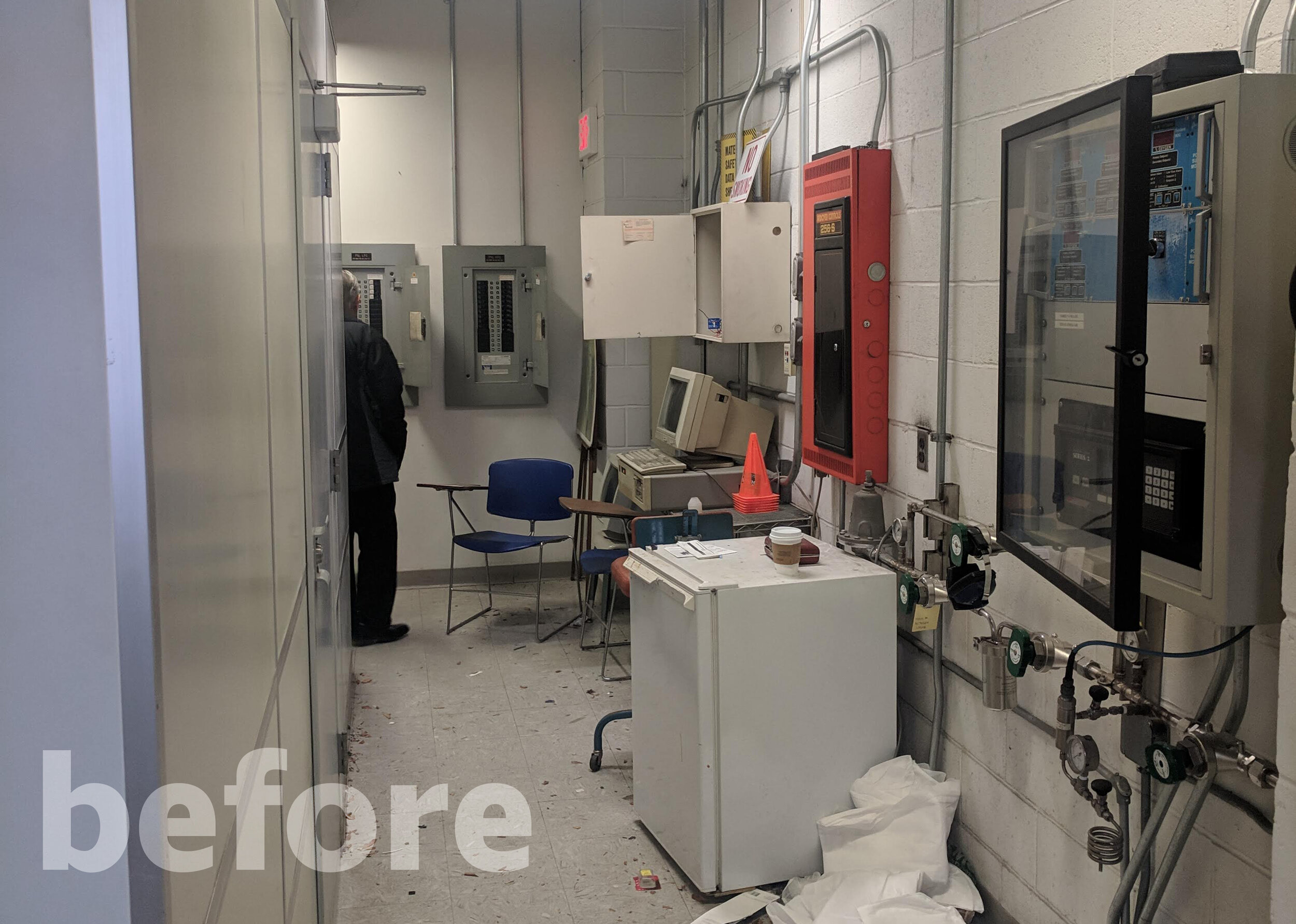

Project Overview
NK Architects was charged with the revitalization of a decommissioned clean room facility to create a state-of-the-art Micro-fabrication Innovation Center (MIC) for the fabrication of micro- and nano-electronic and microfluidic devices and sensors. These devices and sensors will transform technology across a range of areas and will accelerate work on smart devices.
Key new features:
A new public entry
Conference facilities
Integration laboratory
Clean Room (ISO-6)
The new entry provides an upgraded and more visible presence for the MIC while also providing a threshold between the exterior and classified interior spaces. Conference facilities allow for an integrative approach between users of the facility and shared workspace to visiting researchers.
The integration lab provides for the testing and development of the electronic and fluidic devices created within the clean room itself. The ISO-6 rated clean room and lithography facility provide a core facility for advanced research and development of smart devices.
The existing clean room facilities and the surrounding support spaces featured outdated equipment, inefficient use of space, and lacked any presence or connection to the rest of the university campus. NK and its consultants developed an architectural, MEP and processing plan that reshaped the spaces around the central clean room facility into a progression of public to private functions, allowing the refurbished clean room to act as a core facility that is effectively managed from a central manager’s station but is accessible to multiple users.
Along with the Otto H. York Center for Environmental Engineering and the Life Sciences and Engineering Center, the MIC is an integral part of NJIT’s strategic effort to produce translational research on microchip and microfluidic devices with applications in healthcare, environmental technologies, and advanced manufacturing. The revitalization of the clean room was central to NJIT’s vision for a core microfabrication facility.
RELATED CONTENT

